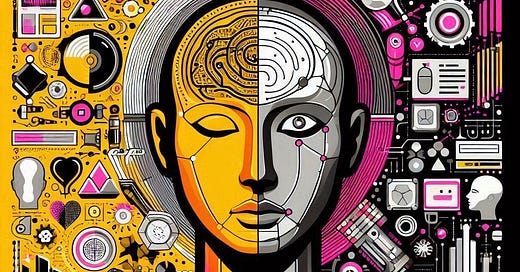Hyper-Humanism and Ultra-Digitalism: 3 Ways to Master the Balancing Act
Knowing Self-Aware Leadership
I’ve talked to a lot of people about the future of work and the more people I talk to, the clearer it's becoming: as we move to greater digital reliance, the more important it is to humanise the workplace.
Then
In the Industrial Era, the thinkers were separated from the doers by an invisible line of them and us. You had the workers and the bosses. L Dav…
Keep reading with a 7-day free trial
Subscribe to Knowing Self-Aware Leadership to keep reading this post and get 7 days of free access to the full post archives.





